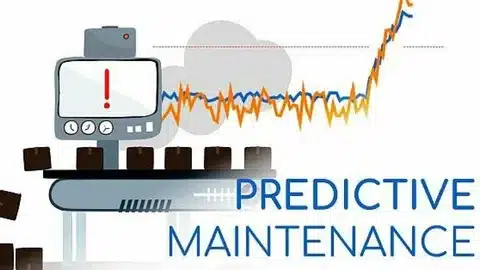Introduction:
In the rapidly evolving landscape of Industry 4.0, predictive maintenance has emerged as a game-changer in the manufacturing sector. By leveraging advanced data analytics, companies can anticipate equipment failures before they occur, minimising downtime and reducing maintenance costs. This strategic approach is powered by data science, and professionals trained through a Data Scientist Course are leading this transformation. The surge in demand for skilled experts has made programs increasingly popular among aspiring data scientists aiming to impact the manufacturing industry.
Understanding Predictive Maintenance
Predictive maintenance involves using sensor data, historical records, and machine learning algorithms to predict when a machine will fail. This approach contrasts with traditional maintenance methods, such as reactive (fix after failure) and preventive (regular checkups regardless of condition). With a Data Scientist Course, professionals gain hands-on experience building models that analyse equipment behaviour patterns and forecast anomalies. Enrolling in a Data Scientist Course equips learners with the essential tools and techniques to harness predictive analytics in real-world manufacturing environments.
The Role of Data Collection and Processing
The core of predictive maintenance lies in data collection and processing. Sensors embedded in manufacturing equipment collect temperature, vibration, pressure, and operational cycle data. Often massive and unstructured, this data requires skilled professionals to clean, process, and interpret it. A structured course typically includes modules on data wrangling, data cleaning, and feature engineering—essential for making sense of raw sensor outputs. A course provides exposure to large-scale industrial datasets, preparing students for the unique challenges of working with manufacturing data.
Developing Predictive Models
Once data is processed, the next step involves developing machine learning models to identify failure patterns and predict breakdowns. This involves regression analysis, time-series forecasting, decision trees, and neural networks. Participants are trained to build, validate, and deploy these models effectively. A course often incorporates industry-relevant projects, enabling learners to simulate real-time predictive maintenance scenarios and strengthening their practical understanding of manufacturing applications.
Reducing Costs Through Smart Maintenance
One of the primary benefits of predictive maintenance is cost reduction. Unscheduled equipment downtime can lead to significant production losses. With predictive analytics, manufacturers can plan maintenance during non-peak hours, ensuring minimal disruption. Through a course, students learn how to quantify these savings and present them in compelling visualisations and dashboards. It emphasises storytelling with data, ensuring that insights derived from predictive models translate into actionable business strategies.
Enhancing Safety and Reliability
Moreover, predictive maintenance enhances safety. Malfunctioning machinery can pose risks to workers and affect product quality. By identifying and resolving issues early, predictive maintenance contributes to a safer work environment and consistent product output. Professionals understand how to integrate maintenance alerts into operational systems to prompt timely action. In a city like Hyderabad, where many manufacturing plants are increasingly automating operations, the skills taught in a course are vital for improving industrial safety standards.
Integrating Real-Time Analytics and IoT
Real-time analytics and IoT integration are important components of successful predictive maintenance strategies. As Internet of Things (IoT) devices become more prevalent on factory floors, the ability to analyse streaming data in real-time becomes crucial. A comprehensive course includes training in real-time data processing tools like Apache Kafka, Spark Streaming, and edge computing frameworks. It caters to these demands by integrating IoT-centric modules, preparing students for the data-driven industrial revolution.
Ensuring Interpretability and Deployment
Another critical aspect is model interpretability and deployment. Manufacturing professionals must understand why a prediction is made, especially in high-stakes environments where downtime can cost millions. Modern courses focus on explainable AI (XAI) tools and techniques to make machine learning models transparent and trustworthy. It incorporates tools like SHAP and LIME, enabling learners to create models that decision-makers can confidently act upon.
Ethical Considerations and Data Governance
Data governance and ethics become more important as the manufacturing industry embraces digital transformation. Protecting proprietary machine data and ensuring compliance with industrial data standards is crucial. A well-rounded course addresses these topics, ensuring that professionals understand the regulatory and ethical frameworks surrounding industrial data. With its growing focus on applied industrial analytics, the Data Science Course in Hyderabad offers dedicated sessions on data security and ethical AI.
Advanced AI and Future Outlook
Looking ahead, predictive maintenance is evolving with the help of advanced AI and deep learning models. Technologies like convolutional neural networks (CNNs) and recurrent neural networks (RNNs) are now being applied to analyse sensor data in greater depth, recognising complex failure patterns that traditional models might miss. A future-ready course includes advanced topics, ensuring learners can work with cutting-edge tools. Enrolling offers exposure to real-world AI applications, thanks to collaborations with local manufacturing firms and research institutions.
Conclusion:
In conclusion, predictive maintenance powered by data science transforms the manufacturing industry by optimising operations, reducing costs, enhancing safety, and boosting productivity. The need for skilled professionals in this field continues to rise, making it an excellent time to invest in this course. Hyderabad’s strong industrial base and academic ecosystem have become a hub for aspiring data scientists. A Data Science Course in Hyderabad imparts technical knowledge. It bridges the gap between theoretical understanding and industrial application, making it a crucial stepping stone for anyone aiming to drive innovation in manufacturing.
ExcelR – Data Science, Data Analytics and Business Analyst Course Training in Hyderabad
Address: Cyber Towers, PHASE-2, 5th Floor, Quadrant-2, HITEC City, Hyderabad, Telangana 500081
Phone: 096321 56744
